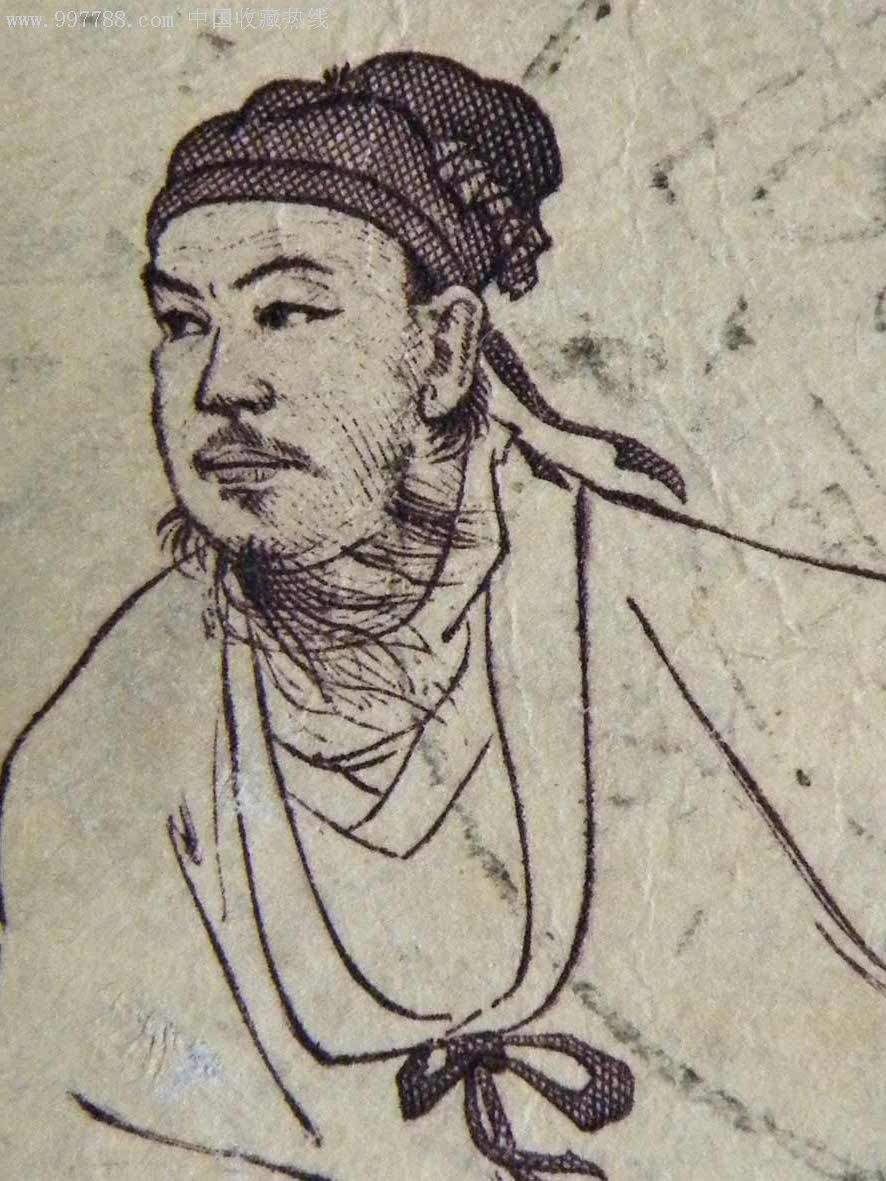A master of Yuan Opera
Overview
Chinese Name: 关汉卿
English Name: Kuan Han-Ching
Other Names: Guan Jizhai 关已斋
Born: about 1234
Died: about 1300
Achievements:
Four Masters of Yuan Opera 元曲四大家
The founder of Yuan Zaju 元杂剧的奠基人
Main Works:
Dou’e’s Grievance 《窦娥冤》
Saving the Dust 《救风尘》
Wangjiang Pavilion 《望江亭》

Brief Biography of Kuan Han-Ching
Kuan Han-Ching, the founder of Zaju 杂剧 of Yuan Dynasty 元朝, together with Bai Pu 白朴, Ma Zhiyuan 马致远, and Zheng Guangzu 郑光祖, is called the “Four Masters of Yuan Opera 元曲四大家”. Kuan Han-Ching ranks first among the four masters.
Kuan Han-Ching (about 1234 – about 1300), courtesy name Hanqing 汉卿, art name Jizhai 已斋, is a Han nationality and a native of Jiezhou 解州 (now Yuncheng 运城, Shanxi Province 山西省).
The drama creation in his whole life is very rich. There are more than 60 plays, most of which are lost. His dramas, with their broad themes and tragedies and comedies, profoundly exposed the decadent and dark social reality of the Yuan Dynasty. His “Dou’e’s Grievance 《窦娥冤》”, “Saving the Dust 《救风尘》”, “Wangjiang Pavilion 《望江亭》”, “Lu Zhailang《鲁斋郎》 ” and “Single Sabre Club 《单刀会》” are all popular works.

His touching Dou E’s injustice 《感天动地窦娥冤》 is the best and most brilliant play in the Yuan drama. It is like a denunciation of the rulers of the Yuan Dynasty. Through the pure and kind tragedy of Dou E 窦娥, it exposes the usurious usury, the local ruffians and hooligans, the corruption of officials, the perversion of the law, and the abuse of people’s lives in the Yuan society, and castigates the chaotic, deformed and ugly nature of cannibalism in the Yuan society.
In his long-term creative practice, he has formed the characteristics of Zaju with a profound theme, rigorous structure, vivid images, and pungent and simple language. He is one of the most prolific and accomplished writers in the history of Chinese drama.
Personal Life and Major Contributions
Born in a medical family
Kuan Han-Ching was born in the late Jin Dynasty 金朝. His family background and living conditions were obviously superior to those of ordinary people, which enabled him to receive education in a feudal society where education was far from universal, especially in the context of years of war and social upheaval, and his education level was relatively high.

After the Yuan Dynasty unified the country, according to his family background, he was listed as a “medical household” by the government. In fact, he was an ordinary medical worker who was close to the masses. Scripting and performing activities were just part-time jobs and means of making a living.
Life in Dadu 大都
In the Yuan Dynasty, Dadu 大都 was a world-famous commercial center. Marco Polo 马可波罗, a traveler, described the prosperous scene of Dadu in the Yuan Dynasty. With a large population, huge houses, and rooms, people from all over the world gathered together. Moreover, “the cities in the world cannot compete with those who imported foreign materials of huge value and hundreds of things into this city.”

After the destruction of the Jin Dynasty, in order to make a living, Kuan Han-Ching came to Dadu and began to specialize in drama activities. He was a talented person and romantic. For most of his life, he went to entertainment places to engage in the creation of Zaju 杂剧.
When he presided over the Yujing Book Fair 玉京书会, he had close contact with the musicians: Wang Heqing 王和卿, Yang Xianzhi 杨显之, Fei Junxiang 费君祥, Liang Jinzhi 梁进之, and so on; He is nostalgic for Goulan 勾栏 Wasi 瓦肆 and is quite familiar with some famous artists. He may have some relationship with Wang Shifu 王实甫, a dramatist. It is said that they jointly completed the drama “The Romance of the Western Chamber 《西厢记》”.
Characteristics of Zaju 杂剧
Kuan Han-Ching’s dramas cover a wide range of areas, almost involving all areas of social life in the Yuan Dynasty, and can be roughly divided into three categories according to the content:
The first kind of crime drama exposes the political darkness and the cruelty of the rulers, touches on the sharp social contradictions and praises the people’s resistance and struggle. Such as Dou’e’s Grievance 《窦娥冤》, Butterfly Dream 《蝴蝶梦》, Lu Zhailang 《鲁斋郎》, etc. The most representative work is Dou E’s Grievance, which was included in the world’s great tragedy, reflecting the people’s fighting spirit and accusing society of darkness.
The second type of marriage and love drama mainly describes the life and struggle of the lower class women, highlights their courage and resourcefulness in the struggle, and affirms women’s independent choice of marriage. Those seemingly powerful villains, in front of smart opponents, are bumped like deflated balls one by one, so the works also have more comedy meaning. For example, “Save the Wind and Dust 《救风尘》”, “Wangjiang Pavilion 《望江亭》”, “Golden Line Pool 《金线池》”, “Tune the Wind and Moon 《调风月》”, “Moon Worship Pavilion 《拜月亭》”, etc. Among them, Save the Wind and Dust is the most representative.

The third kind of historical drama expresses his criticism of the darkness of social reality and his desire for the hero’s reincarnation by shaping the image of the hero, eulogizing the hero, and endowing the hero with the mission of saving the common people. For example, Single Sabre Club 《单刀会》 and Western Shu Dream 《西蜀梦》.
The most outstanding achievement is the Single Sabre Club, which is based on the Three Kingdoms Biography of Lu Su 《三国志·鲁肃传》. It tells the story that Lu Su 鲁肃, a famous minister of the State of Wu 吴, invited Guan Yu 关羽 to a banquet in order to obtain Jingzhou, and Guan Yu went to the meeting alone, shaping a heroic image of awe-inspiring and fearless.